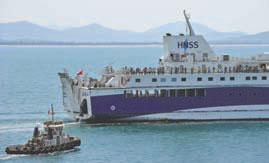2014 ends on positive note for US, China
By Chen Weihua (China Daily USA) Updated: 2015-01-02 10:58Maritime disputes
To Zha Daojiong, a professor at the School of International Studies of Peking University, the most noticeable low point of China-US relations in 2014 came in a highly visible display of mutual acrimony over maritime affairs in the East China and South China seas.
Zha cited that at the Shangri-La security forum in Singapore in early June, US Secretary of Defense Chuck Hagel called China a "destabilizing" actor, and it led to his Chinese counterpart labeling the US as "provocative".
Hagel's words came right after Obama's remarks made at the US Military Academy at West Point at the end of May that China's economic rise and military reach worries its neighbors, according to Zha.
"A series of summits on regional security were due to take place in the latter half of the year. Beijing and Washington were seemingly moving down a sure path of open confrontation, with China's maritime neighbors caught in between," Zha said.
The US has been eager to assure its treaty allies, in particular Japan and the Philippines, both of which have historical maritime territorial disputes with China.
While the US stated that it does not take a position on sovereignty but it does take a position on a peaceful resolution of disputes, many Chinese see US behavior as emboldening those nations to take a confrontational attitude in the disputes.
Zha said the good news is that the joint statements produced at the ASEAN Regional Forum and East Asia Summit did not replicate the same fervor over maritime security. "In addition to efforts by China and the US to tone down the temper, Southeast Asian states demonstrated their capacity to avoid further escalation as well," he said.
Li from Brookings said he would give a grade of "B" to China's performance in the region in the first half of the year and an "A" in the second half.
In Li's views, the Chinese have become more proactive in its diplomacy in the region since the sixth China-US Strategic & Economic Dialogue in Beijing (S&ED) in July, citing the trips by President Xi to Russia, India and South America and the meeting with Japanese Prime Minister Shinzo Abe during the November APEC summit.
"This demonstrates that Chinese foreign policy has become more mature," he said.
However, Li cautioned that problems such as territorial disputes won't be solved anytime soon and will remain a long-term challenge.
- Sino-US ties set to be modified, diplomat says
- Year of cooperation marks US, China relations
- US rejects China involvement in Sony cyberattack
- Stiglitz has harsh words for US policymakers on China
- US arms sales to Taiwan protested
- China-US talks on trade, commerce conclude with fruitful outcomes
- China, US vow to boost tourism
- US urged to treat China with 'strategic foresight'
 Overhauling China's organ transplant system could take some time
Overhauling China's organ transplant system could take some time
Overhauling China's organ transplant system could take some time






